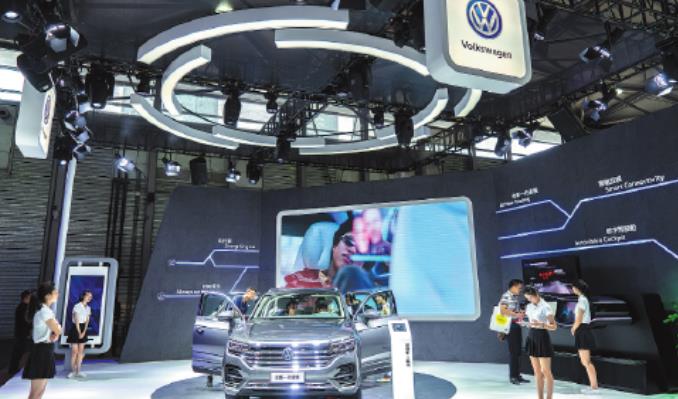Volkswagen may push for controlling stake in Chinese joint ventures


Volkswagen AG said it is considering raising its equities in its Chinese joint ventures, in a move that will make it likely to become the second international carmaker after BMW to have a controlling stake in its operations in the world's largest vehicle market.
The company is reviewing its shareholding structures in China, also its largest market, as the country will play a different role as the global automotive industry is shifting to electrification and connectivity, said CEO Herbert Diess last week in Wolfsburg, Germany.
"We reserve for this kind of decision making time - let's say late 2019, or early 2020 - (where) we would be able to say something together with our joint venture partners about the way into our future in China," said Diess, who is also taking the helm of Volkswagen's operations in the country.
Volkswagen now has three car-producing joint ventures in China with the FAW Group, SAIC Motor Corp and JAC Motors.
Last year, Volkswagen and its joint ventures sold around 4.2 million vehicles under brands ranging from Audi, Volkswagen to Skoda in the country, making it the most popular international carmaker.
"We are also reviewing our portfolio in China. Then we need to discuss and agree with our joint venture partners - SAIC, FAW and JAC - what will be the specific segment to excite our customers," said Diess.
"Yes, we would like to increase our engagement in China. We would like to become a more Chinese company. We will bring new assets to these discussions and a new strategy."
Established in 1984, SAIC Volkswagen is the oldest of its three joint ventures, in which Volkswagen is holding a 50 percent stake. It is currently producing Volkswagen and Skoda-branded vehicles. Audi models are expected to join them soon.
FAW-Volkswagen, which is producing Volkswagen and Audi cars, was set up in 1991. It has been a cash cow for FAW, which has a 60 percent equity in the joint venture.
Volkswagen had long attempted to acquire a larger stake in the joint venture, which is producing and selling Volkswagens and the more profitable Audi cars.
It came close to a 49 percent stake when the Chinese government gave its nod in late 2014, but the effort ended up futile as the emissions scandal soon erupted.
JAC Volkswagen was established in 2018. Different from the other two, it is dedicated to electric cars under an indigenous brand. Volkswagen's Spanish subsidiary, Seat, is expected to come into China through the joint venture. Like SAIC-Volkswagen, it is a 50-50 joint venture.
Analysts said the new JAC Volkswagen is the most probable to see an equity change because JAC has the least bargaining power of the three local partners.
Selling less than half a million vehicles in 2018, JAC is smaller compared with SAIC and FAW and is expected to be more reliant on Volkswagen for technology and profit.
Volkswagen is also betting heavily on electric vehicles. It plans to sell 1.5 million a year in China in 2025, which also makes JAC Volkswagen a prime target.
FAW may yield a little as well, according to analysts. The two sides were close to an equity change several years ago. Now Volkswagen is recovering from the emissions scandal, it may want to finish the job. But analysts said it is unlikely for Volkswagen to gain a controlling stake.
SAIC, China's largest carmaker by sales, is least likely of the three to negotiate an equity change with Volkswagen. Like FAW, SAIC has joint ventures with other international carmakers, making it less reliant on Volkswagen.
A senior Audi executive told China Daily that SAIC has been tough to deal with because of its dominant position in the market.
While Volkswagen's equity plans remain shrouded in uncertainty, BMW will be the first international carmaker to hold a controlling stake in its Chinese joint venture.
Last year, the German premium carmaker reached a deal with Brilliance China Automotive Holdings to raise its stake to 75 percent. Months earlier, China said it would cancel equity caps in the automotive industry within five years to open up its market.
BMW's transaction, which is valued at 29 billion yuan ($4.16 billion), is expected to complete when the Chinese authorities remove limits on foreign ownership in passenger car joint ventures in 2022. So far, the ownership cannot exceed 50 percent.
"Unlike BMW's partner, our partners FAW and SAIC are powerful automobile groups," the Economic Observer quoted a Volkswagen executive as saying.
He might be implying that the third partner, JAC, will be an easier negotiator to start with.




































